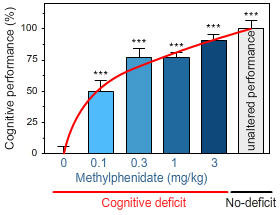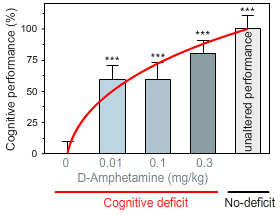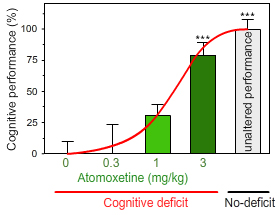Newsletter # 43
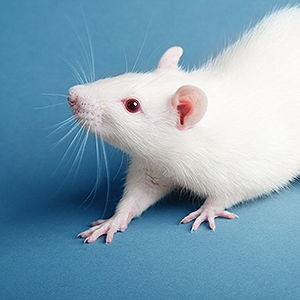
Animal models
Current animal models for ADHD feature psychomotor behavior impairments (impulsivity and hyperactivity) but do not always favorably respond to the psychostimulant drugs used for the treatment of ADHD.
The model implements pharmacological alteration of central cholinergic system implicated in ADHD pathology
-
Graph showing the beneficial effect of different doses of :
Methylphenidate (Ritalin ®), Amphetamine (Adderall ®) and Atomoxetine (Strattera ®) on induced cognitive dysfunction in mice.
-
We would be more than happy to discuss with you about your projects and the services we can propose following your needs. -
References: 1. Central nicotinic cholinergic systems: A role in the cognitive dysfunction in Attention-Deficit / Hyperactivity Disorder? Behavioural Brain Research 175 (2006) 201-2112. Decreased binding capacity (Bmax) of muscarinic acetylcholine receptors in fibroblasts from boys with attention-deficit/hyperactivity disorder (ADHD). ADHD Atten Def Hyp Disord (2013) 5:267-271
Get in touch

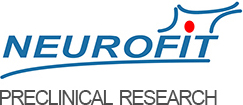
 PREVIOUS
PREVIOUS
